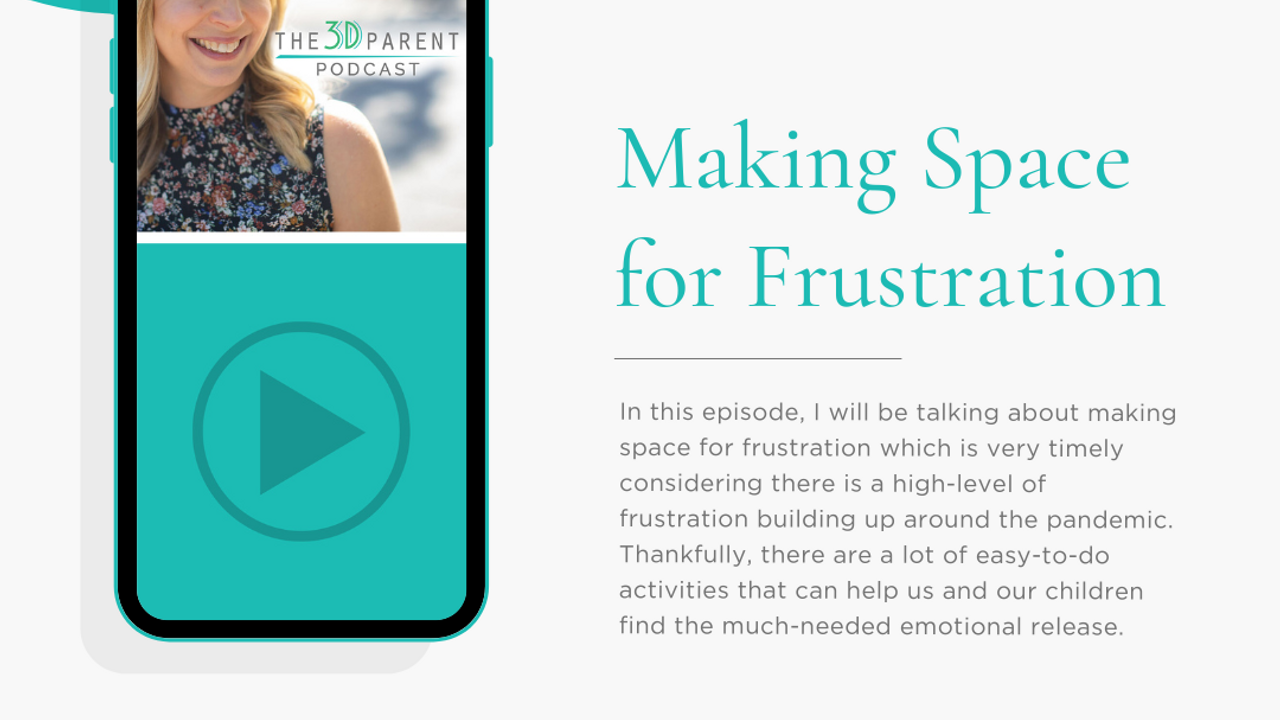Making Space For Frustration
May 18, 2021
“I encourage you to embrace and make space for your children's frustration to move. It might be the answer as to what's been missing from your parenting and self-care practice during this period of high frustration.”
This week on the 3D Parent Podcast, I will be talking about making space for frustration which is very timely considering there is a high-level of frustration building up around the pandemic. Thankfully, there are a lot of easy-to-do activities that can help us and our children find the much-needed emotional release.
We will go over topics such as:
- The importance of embracing and expressing frustrations in our family and our society.
- What foul frustration is all about and key behaviors to identify if your children are struggling with it.
- Three categories of emotional playground including specific emotional release activities you can easily try the comfort of your home!
When exploring the activities mentioned in this episode, remember that there is not a single activity that will work on all children. So I encourage you to have patience and understanding when trying to help your kid move their frustrations.
Things You Will Learn

Episode Resources
Quotes From Episode 56
“We need to also make space for the expression of frustration in our culture.”
“We need to acquire the ability to embrace and express positive and negative emotions to achieve a balanced emotional energy.”
“Emotions need to be moved and expressed. It can’t stay stuck.”
“When you give permission to express feelings that are explosive and destructive, outbursts and foul frustrations will be reduced.”
“I encourage you to embrace and make space for your children's frustration to move. It might be the answer to what's been missing from your parenting and self-care practice during this period of high frustration.”
“What we need to help our children, and oftentimes ourselves, who are struggling with a lot of frustration is to make space for emotional release.”
Let's work together! I provide 1:1 support for parents motivated to make positive changing in their parenting and gain confidence and increase fulfillment in their role as parents. If this sounds like it might be what you've been looking for, book a free consultation today.
Stay connected with news and updates!
Join our mailing list to receive the latest news and updates from The 3D Parent.









